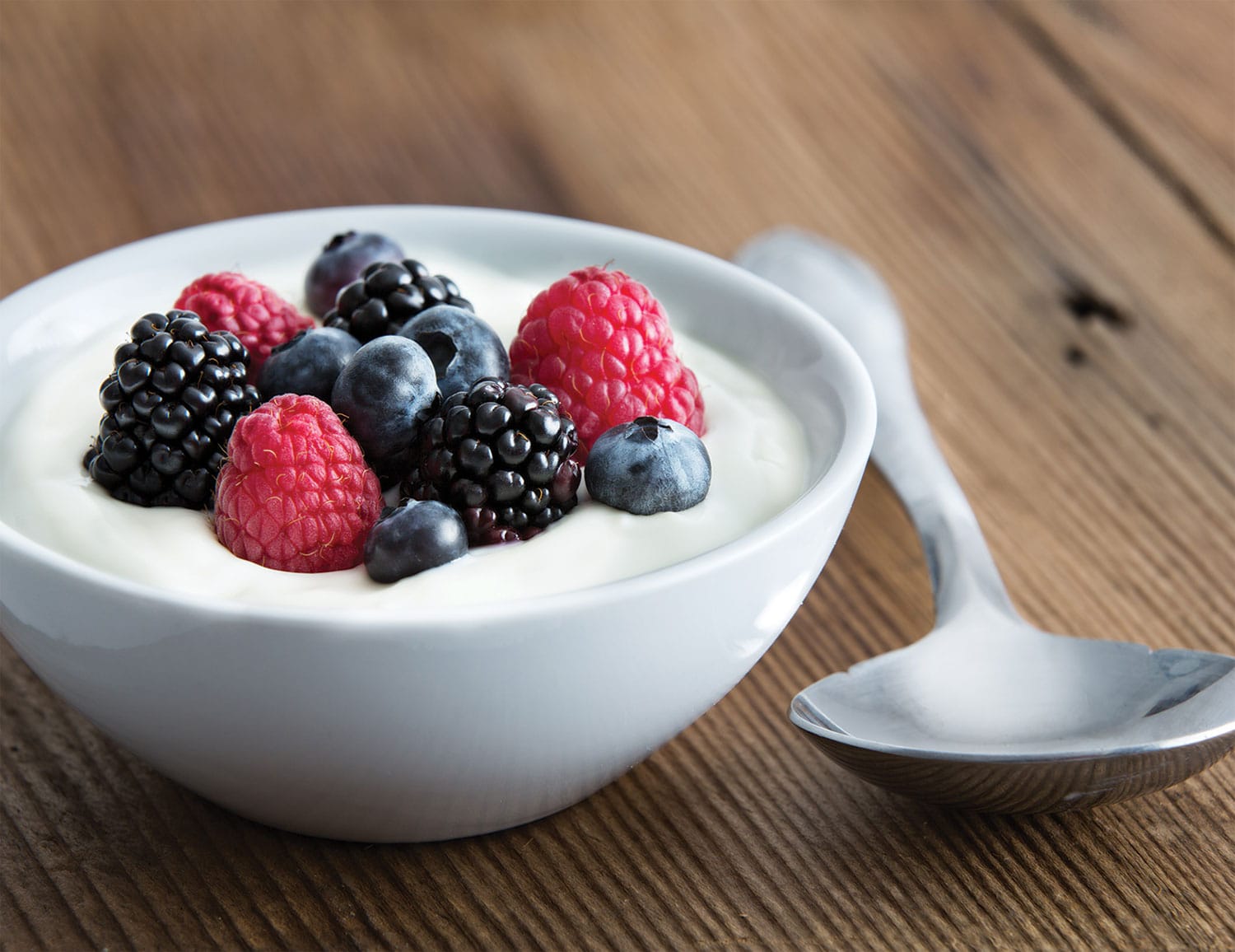HUMANS HAVE BEEN EATING YOGURT for thousands of years, yet researchers are still investigating its benefits to overall health and disease prevention. There is evidence that consuming yogurt can reduce the risk of colorectal cancer, and an analysis published Oct. 24, 2019, in JAMA Oncology suggests it can also reduce lung cancer risk, especially when paired with a high-fiber diet.
The analysis pooled data from 10 studies that together included more than 1 million adults living in the U.S., Europe and Asia. The researchers analyzed dietary information using questionnaires and categorized participants as having no, low or high daily yogurt consumption. They also stratified individuals into five groups based on their daily fiber intake.
Compared with participants who did not eat yogurt, those who consumed a low amount of yogurt were 15% less likely to develop lung cancer, and those who consumed a high amount of yogurt were 19% less likely to develop lung cancer. The researchers also found that individuals who consumed the largest amount of fiber were 17% less likely to develop lung cancer compared with those who ate the least fiber.
Those who had both high-fiber and yogurt-rich diets saw the greatest decrease in lung cancer risk. Fiber and yogurt may protect against lung carcinogenesis due to their effects on the gut microbiome, suggests Xiao-Ou Shu, an epidemiologist at Vanderbilt University Medical Center in Nashville, Tennessee, who led the study.
Live and active cultures, which are bacteria that help ferment milk, are components of yogurt that may affect the makeup of the gut microbiome. Fiber, on the other hand, is rich in prebiotics, which are nondigestible compounds that can be fermented by microbes in the gut and that stimulate the growth of beneficial gut bacteria.
Registered dietitian nutritionist Jo Ann Hattner pinpoints the potentially synergistic effect of fiber and yogurt on lung cancer risk as the study’s key finding. While the yogurt is providing live bacteria, the fiber is providing the prebiotics, says Hattner, who was not involved with the study. “It’s that combination, that synergy, that may be the most potent.”
Cancer Today magazine is free to cancer patients, survivors and caregivers who live in the U.S. Subscribe here to receive four issues per year.





